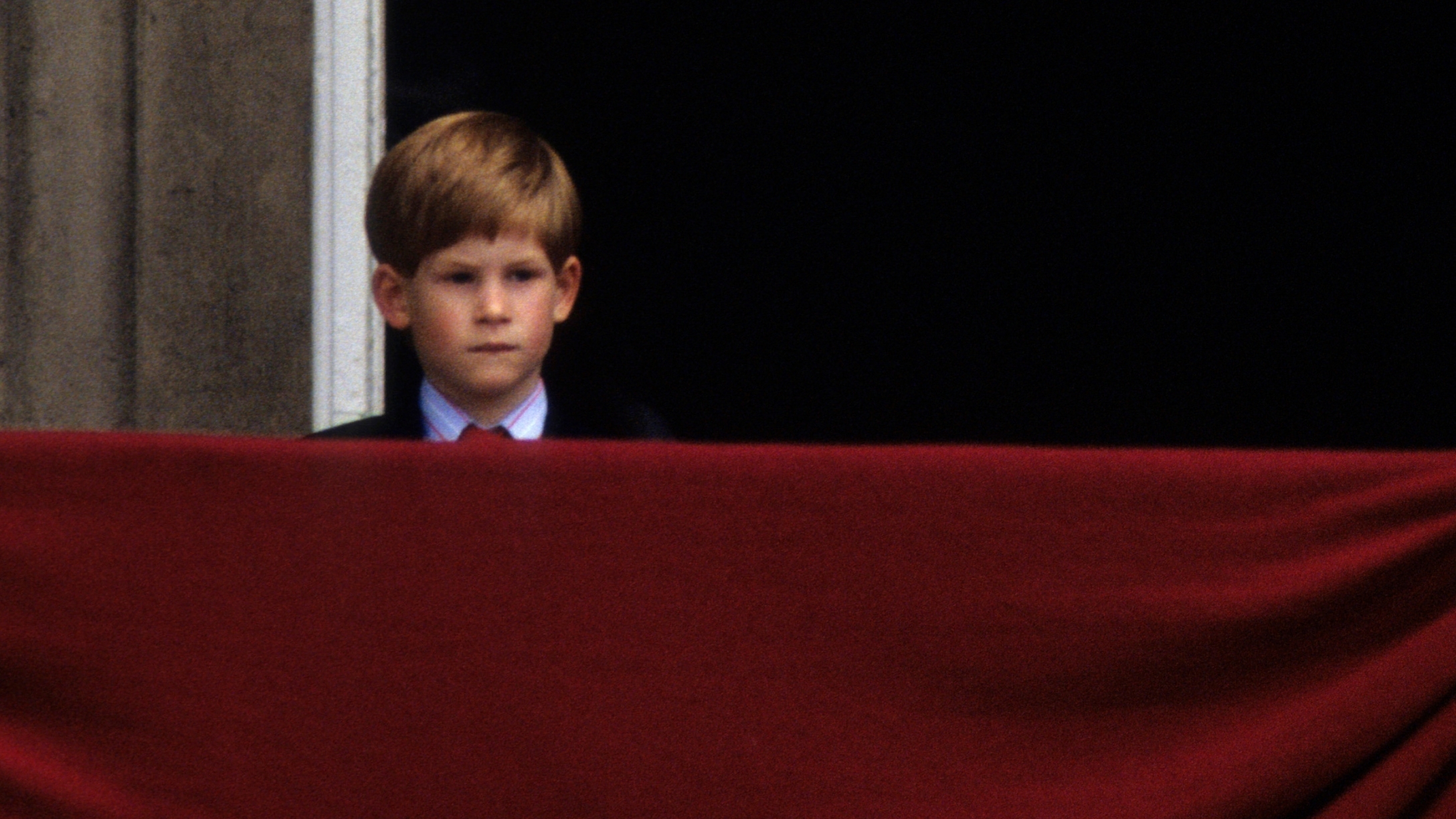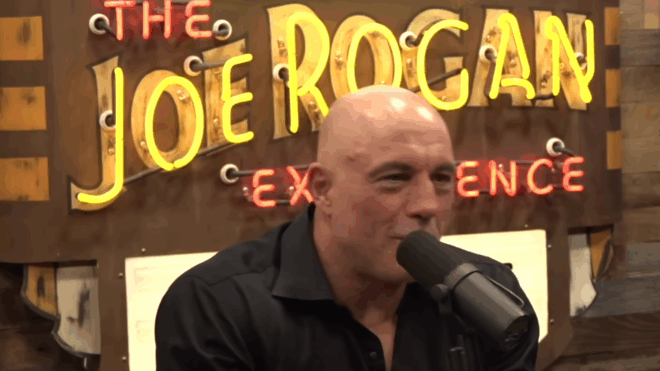
Prince Harry's 2021 interview on Dax Shepard's podcast, Armchair Expert, is bound to ruffle some royal feathers.
Harry has continued his commitment to discussing mental health. In this frank discussion, he opened up about his own in a way he really hasn't before. Harry stunned by making critical comments of his childhood as a royal in relation to how they've impacted his views throughout his life and influenced how he is as a father to his own family.
Harry was sympathetic to the fact that the royals only know what they know, steeped in tradition until someone is willing to make a change. Many once thought his father, Prince Charles, would make great changes from his own childhood in this respect. Harry's revelations tell quite the opposite, which is sure to be seen as an attack on the future king rather than commentary on Harry's own experiences.
Prince Harry sat down with Dax Shepard to talk mental health on a 2021 episode of Armchair Expert, and the conversation took some surprising turns. They began by talking about the hurdles from childhood that prevented them from starting their own mental health journeys earlier as adults.
"I think more like, 'Oh you need help,' as a case of not so much weakness, but 'I don't know how to deal with this,' 'You're unhinged,' or 'You're not particularly well, go and seek help,'" Harry shared. "And it's like, well, rule number one is when you actually want or feel as though someone needs help, telling them to their face, 'You need help,' is probably the best way for them to go. No, I don't object, run away, delay, all these kind of things. Or go and drink or take drugs or whatever you find."
"Every single one of us, wherever we are, wherever we come from, we're always trying to find some way to be able to mask the actual feeling and be able to try and make us feel different to how we are actually feeling, perhaps having a feeling. Right? Because so many people are just numb to it," he continued.
"That was a huge part of the beginning of my life, which was like, I rejected. I said, 'There's nothing wrong with me. I'm fine.'"
Harry and Dax also discussed the idea that talking about their mental health, as men and public figures, is a cry for attention.
"So if you are making that conscious decision to say: You know what? It's not self-serving, but I want to share my story," Harry posed. "I'm being asked to share my story to hopefully help someone or loads of other people. I'm probably going to get trolled. I'm probably going to get attacked by the same people that were doing [it] anyway. If I'm willing to make that decision, surely that comes from a place of courage rather than weakness?"
As Harry talked about the documentary series on mental health that he was working on with Oprah, Dax noted that it must be harder for Harry to share the realities of a rough life when people lack compassion because of the privilege it also entailed.
"So the weird thing is that, yeah, I was born into this privilege," Harry noted. "But the privilege also gave me the most unbelievable front row seat and education. My education is not in school, my education is about meeting people across the Commonwealth, right? 52 countries, 2.4 billion people, 60 percent of that 2.4 billion people under the age of 29."
He went on to explain that the situations he was put in gave greater context to his privilege as he grew.
They also noted that there had to be a draining element for Harry in having to comfort people in situations that were on the surface worse not knowing what his life might have been like behind the scenes and how he had his own struggles.
"Yes, it's this the job, right?" Harry recalled. "Grin and bear and get on with it? Or is it in my early 20s, I was a case of like, I just, I don't want this job. I don't want to be here. I didn't want to be doing this.
"Look what it did to my mum. How am I ever going to settle down — I have a wife and a family when I know that it's going to happen again. Because I know, I've seen behind the curtain. I've seen the business model. I know how this operation runs and how it works. I didn't want to be part of this. And then once I started doing therapy, suddenly there was like the bubble was burst."
"I plucked my head out of the sand, gave a good shake-off, Harry continued. "And I was like, OK, you're in this position of privilege. Stop complaining or stop thinking as though you want something different. Make this different. Because you can't get out. So how are you going to do this differently? How are you going to make your mom proud? How are you going to use this platform to really effect change and be able to give people that confidence to be able to change their own lives?
"It was interesting because now looking back — and of course at the time, it was a lack of awareness, but there was just a glimmer of awareness — now looking back at it, I realized that helping other people helped me. And when I created the Invictus Games, for instance, for wounded servicemen and women, from now 20 different countries. When I started, it was like, I'm gonna create this platform because I know that sport rehabilitates people, both physically and emotionally and mentally.
"But once I started doing it, once I started to see the progress and the impacts, I suddenly was like, wow, healing other people heals me. And I think that's where the sort of compassion piece comes in for all of us, which is once you've suffered, you don't want anybody else to suffer."
Harry explained that Meghan was the one who helped him seek out therapy after seeing how much of a toll anger and pain were taking on him.
"Hopelessness. That's my biggest sort of Achilles' heel," Harry admitted.
"The three major times I felt completely helpless. One, when when I was a kid in the back of the car, and my mom being chased by paparazzi. Two was in Afghanistan in an Apache helicopter.
"And then the third one was with my wife, and those are the moments in my life where, yeah, feeling helpless hurts, it really hurts. And that's when you think yourself [expletive]. Like, I got the privilege. I've got the platform. I've got the influence. And even I can't fix this. I can't change this. And when you start getting in your head about it, that's when it starts sort of taking a toll."
"I think the biggest issue for me was that being born into it, you inherit the risk, you inherit the risk that comes with it, you inherit every element of it without choice," Harry later said of his own experience.
"And because of the way that the UK media are, they feel an ownership over you. Literally like a full-on ownership. And then they give the impression to some of their, well, most of the readers, that that is the case. But I think it's a really dangerous place to be if you don't have a choice, but then, of course, then people quite rightly will turn around and go, so what if you didn't have a choice? It was privilege?"
Dax and Harry went on to talk about his military career and why that was a time in his life where he felt stability and clarity. Later, they went on to discuss the idea that pain and trauma can be communicated across generations.
"Isn't life about breaking the cycle, right? There's no blame. I don't think we should be pointing the finger or blaming anybody," Harry noted. "But certainly, when it comes to parenting, if I've experienced some form of pain or suffering, because of the pain or suffering that perhaps my father or my parents had suffered, I'm going to make sure that I break that cycle, so that I don't pass it on, basically.
"There's a lot of genetic pain and suffering that gets passed on anyway. And we as parents, we should be doing the most that we can to try and say, You know what? That happened to me — I'm gonna make sure that doesn't happen to you."
Harry admitted he didn't realize the kind of pain and trauma that has traveled down generations of the royal family.
"It's really hard to do, but for me it comes down to awareness. Like I never, I never saw it. I never knew about it. And then suddenly, I started to piece it all together and go, OK, so this is where he went to school. This is what happened. I know this bit about his life. I also know that's connected to his parents. So that means that he's treating me the way that he was treated," Harry said.
"Which means: How can I change that for my own kids? And well, here I am. I've now moved my whole family to the US. Well, that wasn't the plan. Sometimes you've got to make decisions and put your family first and put your mental health first, and we're not talking about mental health again on that spectrum piece like mental illness is at one end. Yeah, and then total joy and happiness is at the other."
Dax and Harry also talked about how mental health is treated differently than physical health in terms of time off and care needs.
"I hate this idea. And I was one of them. I fell for it. Right?" Harry said. "I didn't acknowledge that clearly what happened to me when I was 12 years old, losing my mom and all the other pieces that happened, the traumatic experiences that happened to me since then, I didn't acknowledge them, when perhaps — maybe I need to deal with this because if I don't, how the [expletive] am I going to be a decent father to my son and my daughter? Like that awareness, I didn't have then.
"So I think it's … that's certainly what I've experienced for my own process, my own journey, my family and my friends and everybody else's. Anyone who thinks, oh, we're fine. You're the one who's like, willing to talk about it. It's like, yeah, I'm willing to talk about it, and talking about it has helped me heal. Now I need to help you guys."
Critics of Harry's have slammed the episode as another way Harry is profiting off his former life. They also believe that his goal was to slam not only his father but also Queen Elizabeth and the late Prince Philip in their parenting of Charles and his siblings. This is despite Harry explicitly saying he doesn't assign blame for the generational trauma that clearly haunts the family.
Generational trauma is an area of mental health that a lot of people are not used to discussing openly. As writer Ashley C. Ford expertly noted in her tweet, an attempt to heal from what hurts you isn't a slap in the face of those who raised you. Bettering yourself doesn't have to come with blame — something that many royal loyalists attacking Harry are refusing to realize.




